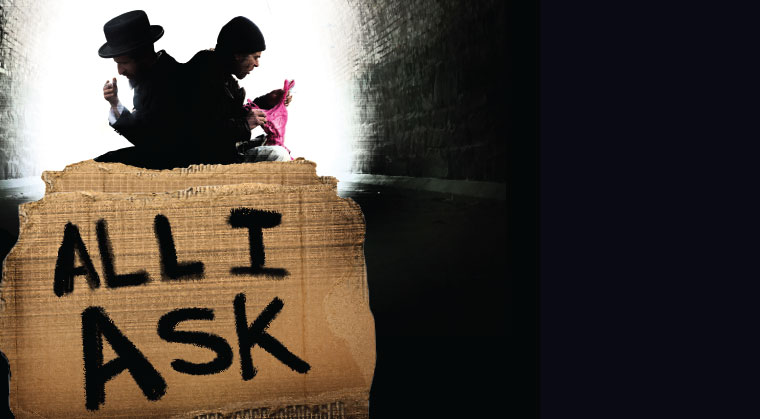All I Ask: Chapter 3


T
zvika Lubin may have been only 18 years old, but he already knew what he wanted in life: to get out of yeshivah as fast as possible and start working. He knew his parents would never allow a son of theirs to leave the yeshivah of his own free will. There was only one option: to get expelled. Not that his parents would be happy with that option either, but for his freedom, he was willing to pay the price.
Or so he thought.
Once each week, at a randomly chosen time during morning seder, Reb Shaye Langerman would do an inspection of the dormitory, searching the rooms for contraband. The day of the search changed from week to week, to further confuse the enemy.
Two years ago, a bochur had been thrown out of yeshivah after Rav Langerman found forbidden books in his closet. The boy had been clever enough to conceal them in the folds of towels and sheets, but not clever enough to fool the menahel. He left that very day and never returned — not to the yeshivah and not to the frum community.
Now, Tzvika dredged up his memories of the long-ago scandal and decided to make his move. In an ad leaflet, he found a small notice from somebody with a used MP3 player for sale. He called the number, arranged to meet the seller, and became the owner of one of the clunky little devices that were the height of technology at the time.
The next morning before Shacharis, Tzvika wrapped the forbidden fruit of his venture in a black plastic bag and hid it under his mattress. He hoped Rav Langerman would perform his weekly inspection that same day — and at the same time, he feared the moment of discovery. He dreaded it, in fact. But it was better to get it over with.
Nothing happened that day. But the day after, in the middle of first seder, one of the bochurim told him he was wanted in the office. As Tzvika passed through the beis medrash, the corridors, and the administration wing, he etched a picture of them in his memory and mentally bid farewell to the familiar sights and the good people he’d known here.
Two stern-faced rabbinical figures were waiting for him in the main office: Shaye Langerman and Rav Kitovitz. The incriminating black bag lay grimly before them on the desk.
“We were going to expel you straightaway,” Rav Langerman said, “but the mashgiach insisted that you go speak with him first.”
“Just so we won’t be in the geder of choisheid b’kesheirim,” Rav Kitovitz said gently, “tell us, Tzvika — does this bag belong to you?”
“I won’t deny it,” Tzvika replied. He was observing the scene as if detached from it and just waiting for it to be over.
“Who did you get this device from?”
“I bought it myself,” Tzvika said without blinking, aiming for a defiant tone and hoping it would provoke them into throwing him out on the spot.
(Excerpted from Mishpacha, Issue 759)
Oops! We could not locate your form.


